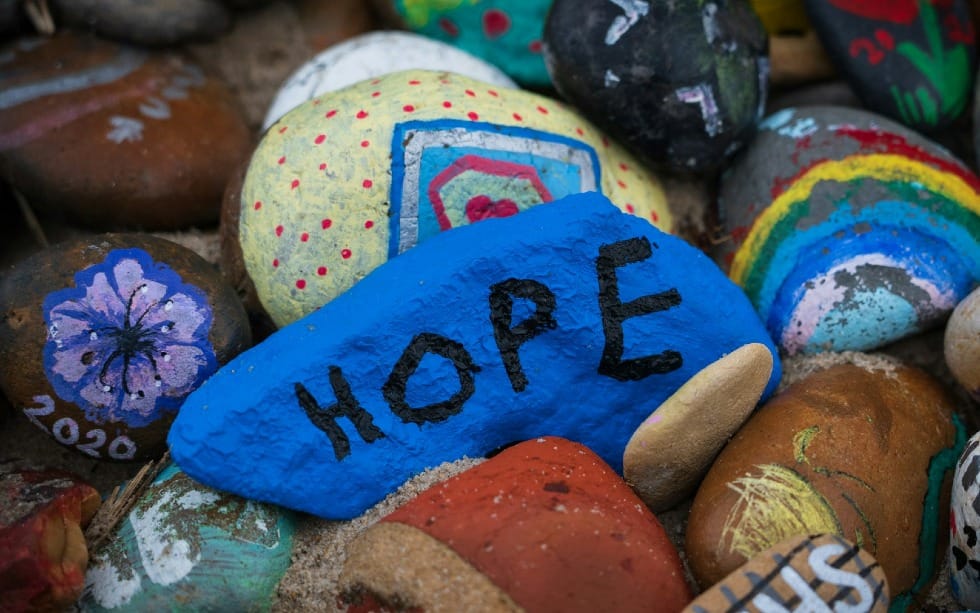What God’s Sovereignty Teaches About Our Hope (Obadiah)
When life feels unfair and others seem to win by doing wrong, Obadiah reminds us that God's justice will prevail and his kingdom will stand forever.

Obadiah
Today's Scripture Passage
A Few Thoughts to Consider
How often do you think about God’s sovereignty?
When times are good, it’s easy to set this thought aside. But when times are bad, this word offers tremendous hope. This is especially true in the Book of Obadiah.
The shortest book in the Old Testament, Obadiah primarily addresses the judgment of Edom, a nation neighboring Israel. This book “is divided into two main sections. The first is particular and specific, consisting of oracles directed against Edom. The second is more general, being oracles concerning Israel and the nations.”[1] Obadiah condemns Edom for its pride and for taking advantage of Israel during its time of distress. The prophecy emphasizes that Edom will face divine retribution and total destruction for its actions.
Ultimately, the book affirms that justice will prevail and Israel will be restored. This is rooted in a deep belief in God. As Leslie Allen notes, “Divine sovereignty is the audacious, historically unlikely theme Obadiah stresses. To all the world around, Judah’s weakness must have seemed a mirror of the weakness of Yahweh, surely a subordinate deity who had yielded to the pressure of the stronger gods of Babylon, Edom, and the like.”[2]
As David Baker notes, “Israel had no shortage of enemies during its history as a nation in Canaan. Egypt, Assyria, and Babylon, the Fertile Crescent’s three great powers in Old Testament times, were often actual or potential enemies of Israel.” He goes on to point out, “The smaller neighboring states of Aram, Philistia, Moab, Ammon, Phoenicia (Tyre and Sidon), and Edom were similarly enemies rather than allies at most times. Edom in particular was tenaciously and rather constantly hostile from beginning.”[3] Still, amid this onslaught of oppression, Obadiah offers hope to God’s people. As Douglas Stuart writes,
This is done in two different stages, corresponding to the two major divisions of the prophecy. Firstly, Judah can be assured of God’s justice in that Edom, a nation who took part in her own humiliation whether as an observer or as a participant (vv. 11–14), would herself be humiliated (vv. 2–10, 15b). This judgment is due not only to Edom’s gloating, but also to her arrogance. She perceived herself as relatively superior to and unassailable by the surrounding nations (vv. 2–4), but forgot the absolute transcendence of Israel’s God. Secondly, this can be seen on a wider scale, where all the nations will be judged and Judah will get back from them all that which was taken (vv. 15a, 16–21). God has not forsaken his people, as might have been feared when they suffered defeat. He will continue to support them because he is their covenant God, Yahweh, who met them at Sinai.[4]
Through Obadiah, God’s people are encouraged that their suffering will not last forever. There is coming a day when those who ridicule them will be brought low. “however, at the same time, the prophecy is a caution lest they behave in the same way as the Edomites, risking a similar punishment.”[5]
A Meditation to PRAY
Praise | Lord, I praise you for your justice and righteousness. You are sovereign over all nations, and your plans are perfect. Thank you for your protection and the promise of deliverance for those who trust in you, as you have declared, "But there will be a deliverance on Mount Zion, and it will be holy" (Obadiah 1:17).
Release | I release my worries and burdens to you, acknowledging that you are in control. I let go of any desire for revenge or retribution, trusting that you will bring about justice in your perfect timing, for you have said, "As you have done, it will be done to you; what you deserve will return on your own head" (Obadiah 1:15).
Ask | I ask for your guidance and wisdom as I navigate the challenges in my life. Help me to act justly, love mercy, and walk humbly with you. Give me the strength to forgive those who have wronged me and to seek reconciliation, remembering that "the house of Jacob will be a blazing fire" (Obadiah 1:18), purifying and restoring.
Yield | I yield my will to yours, trusting your divine plan. I submit to your authority, recognizing that your ways are higher than mine. Use me as an instrument of your peace and justice in the world, knowing that "the kingdom will be the Lord's" (Obadiah 1:21).





